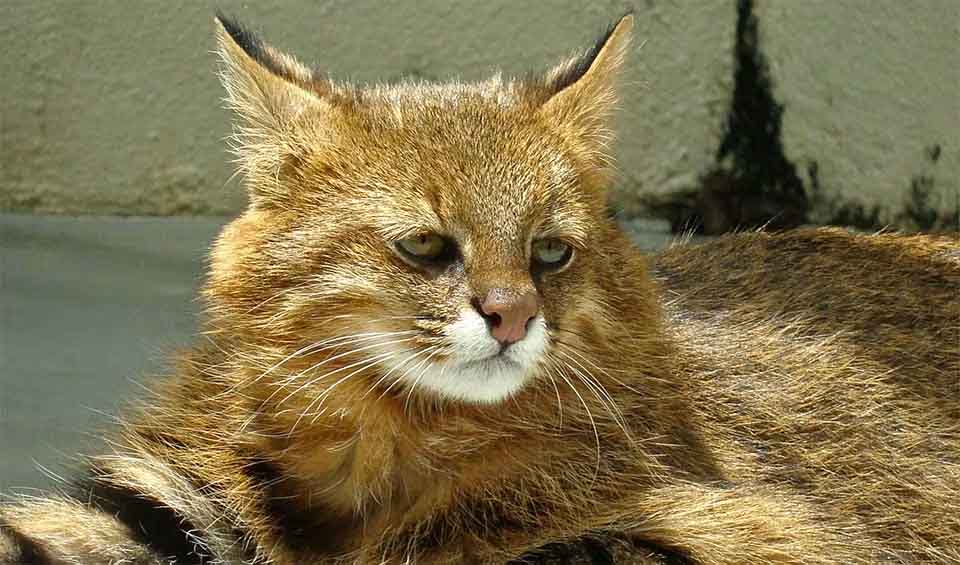Native to South America, particularly thriving in regions like the Pantanal wetlands, this species exhibits a blend of characteristics that could easily make it the envy of the feline world. Their fur, reminiscent of the glorious hues seen in a sunset, spans a spectrum from warm golden to reddish-brown shades.
Despite their striking appearance, it’s essential to recognize the Pantanal cat for what it truly is: a formidable predator. These cats possess an impressive ability to hunt and take down prey that is significantly larger than themselves. This skill set underscores their status as apex predators within their ecosystem.
However, the Pantanal cat’s life is not solely defined by its hunting activities. When not engaged in the pursuit of prey, these cats reveal a completely different side of their personality. Particularly when interacting with their offspring, Pantanal cats display a level of playfulness and affection that is both endearing and fascinating. Watching them engage in playful antics with their little ones offers a glimpse into the social and familial bonds that characterize their existence. These moments of tenderness and play endear them to those fortunate enough to observe them in the wild, showcasing a complexity in behavior that belies their predatory nature.
The Pantanal cat’s habitat is as diverse as the animal itself, ranging from the dense forests and open savannas to the sprawling wetlands of South America. This adaptability to different environments highlights the Pantanal cat’s resilience and versatility. However, like many of the world’s most intriguing wildlife, the Pantanal cat faces threats from human encroachment, habitat destruction, and the ever-present dangers of poaching.
Distribution
 Argentina
Argentina Brazil
Brazil Bolivia
Bolivia Paraguay
Paraguay Uruguay
UruguayAnything we've missed?
Help us improve this page by suggesting edits. Glory never dies!
Suggest an editGet to know me
Terrestrial / Aquatic
Altricial / Precocial
Polygamous / Monogamous
Dimorphic (size) / Monomorphic
Active: Diurnal / Nocturnal
Social behavior: Solitary / Pack / Herd
Diet: Carnivore / Herbivore / Omnivore / Piscivorous / Insectivore
Migratory: Yes / No
Domesticated: Yes / No
Dangerous: Yes / No




